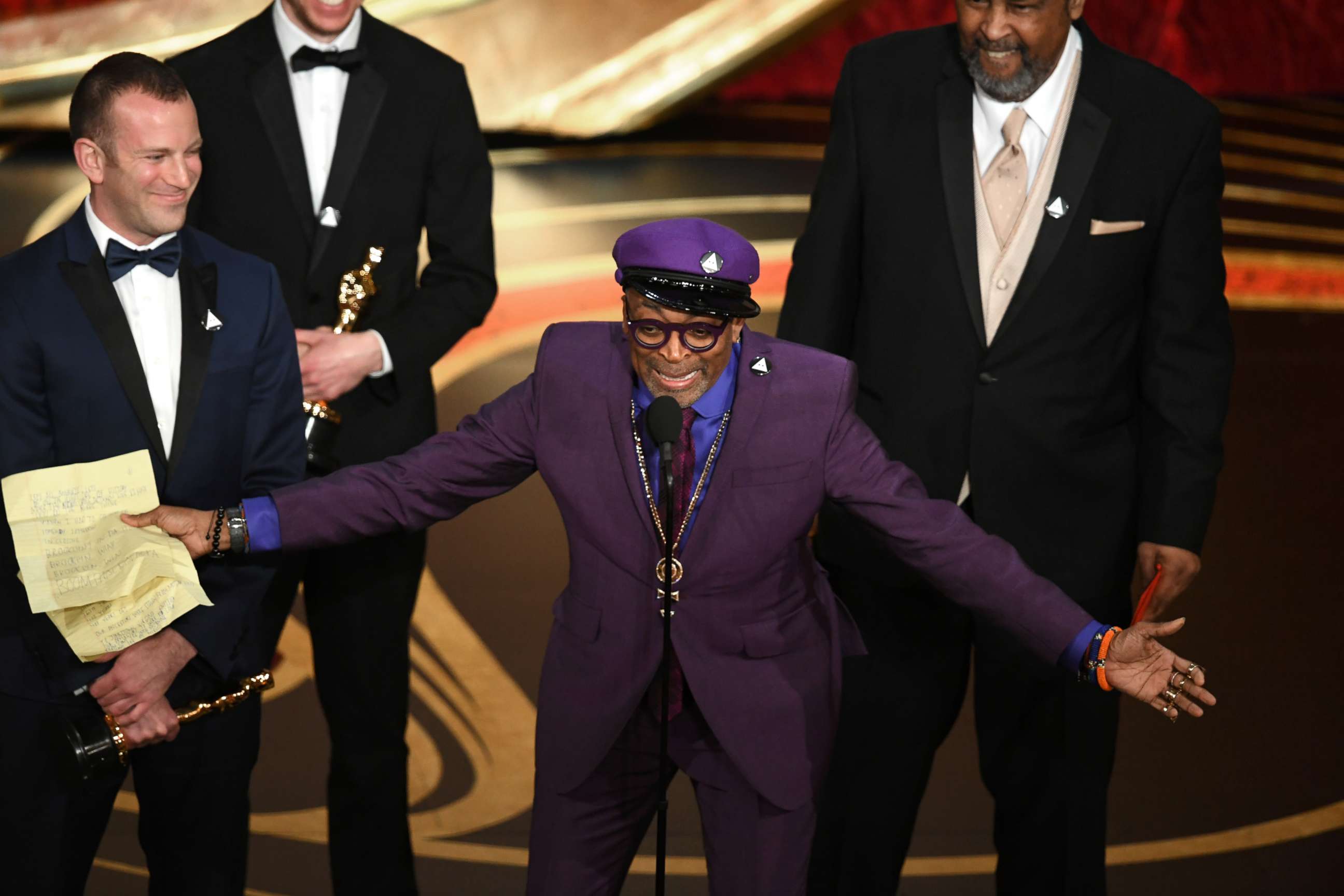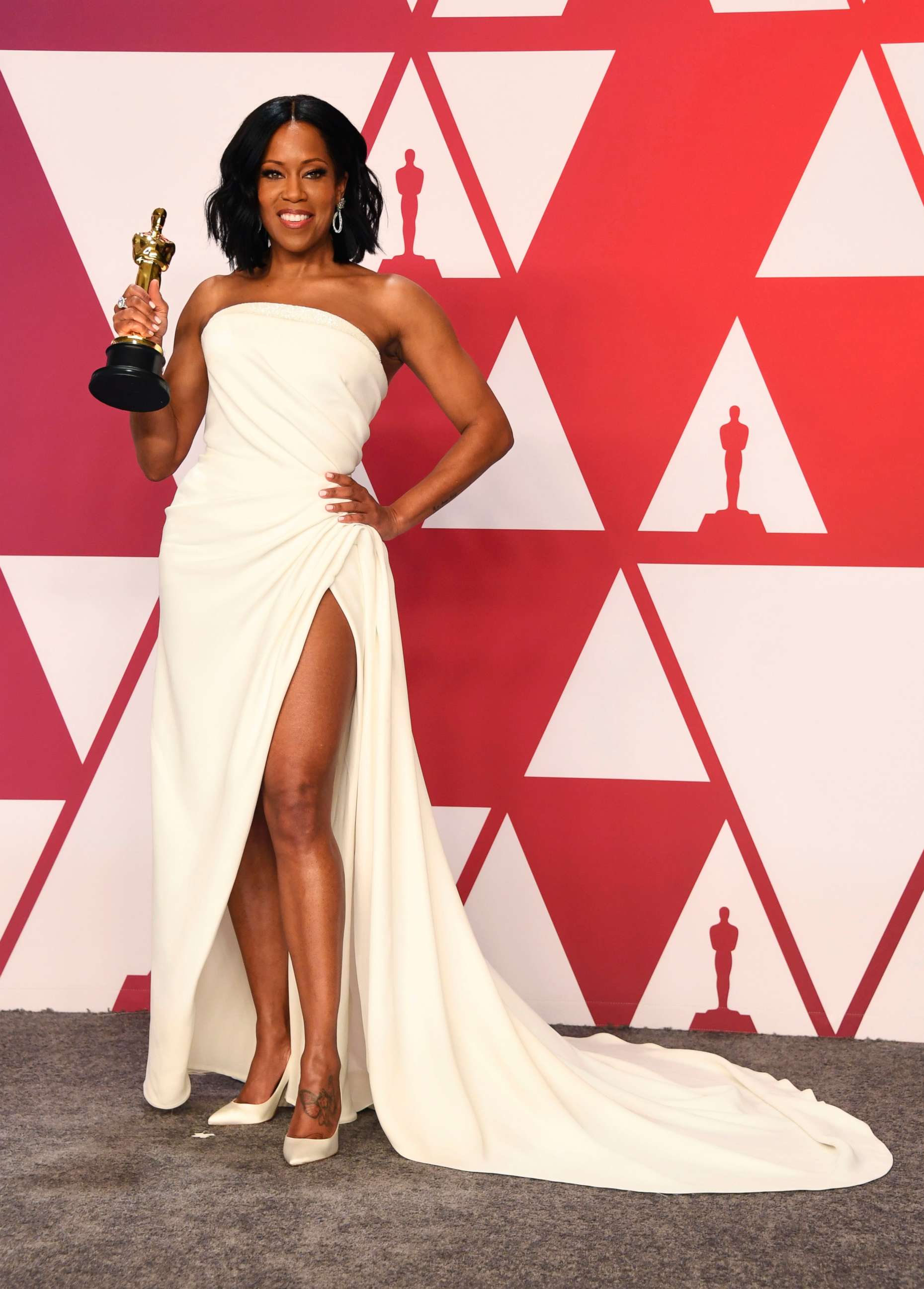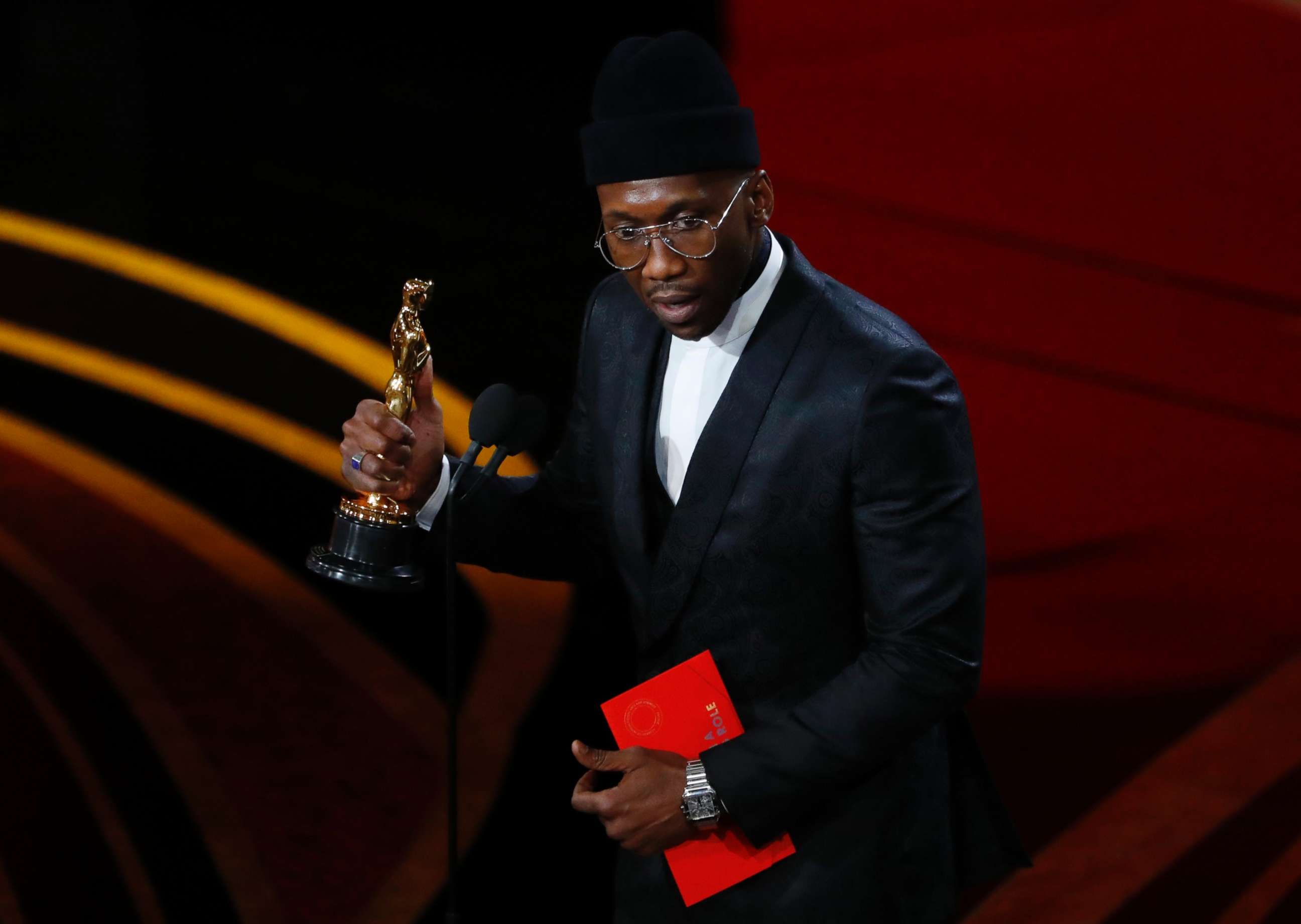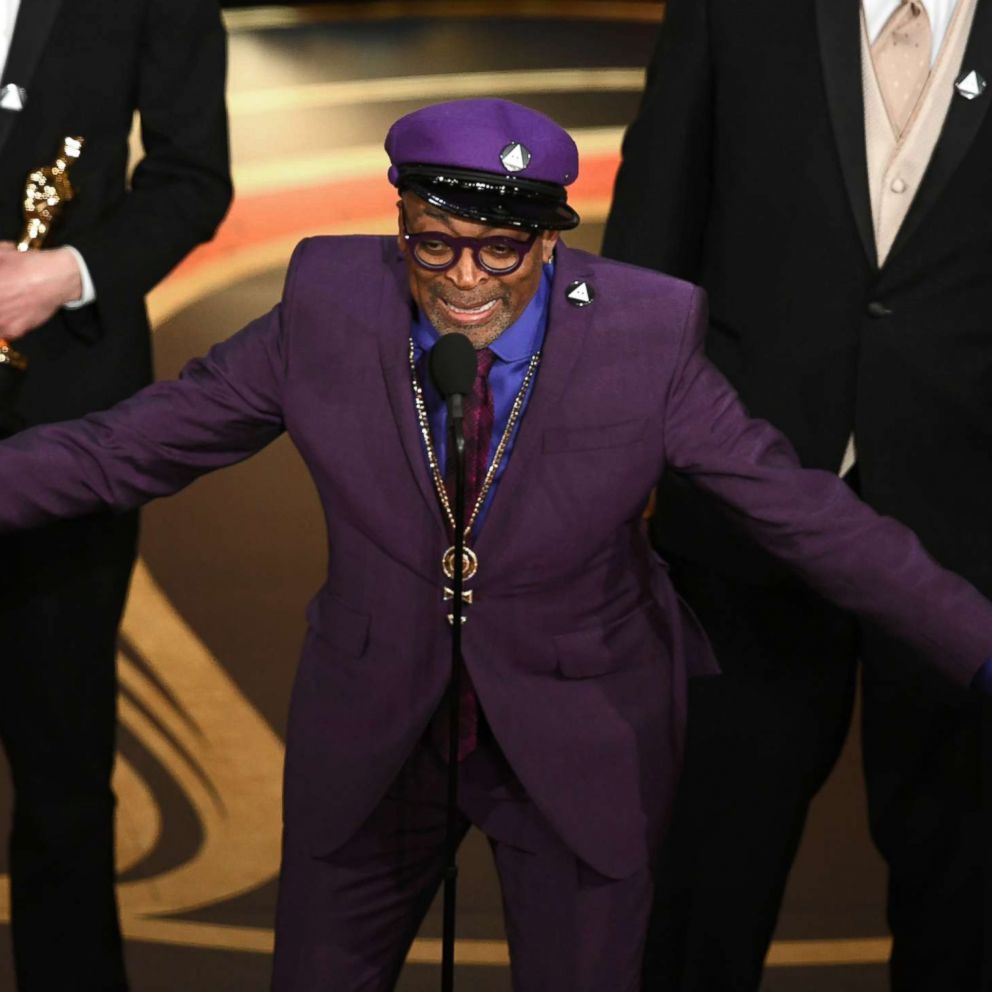Black excellence reigned supreme during the 91st annual Academy Awards Sunday night.
Spike Lee was the evening's ultimate show stopper when the director received a standing ovation for his powerful acceptance speech after winning for best adapted screenplay for "BlacKkKlansman."
Lee co-wrote the project -- based on the true story of Ron Stallworth, a black cop who infiltrated the Ku Klux Klan in 1978 -- with Charlie Wachtel, David Rabinowitz and Kevin Willmott.
He was welcomed on the stage by his fellow Morehouse brother, Samuel L. Jackson, and spoke about the significance of the moment, his ancestors who paved the way, and his hope for the future.

"The 2020 presidential election is around the corner," Lee said. "Let's all mobilize. Let's all be on the right side of history. Make the moral choice between love versus hate. Let's do the right thing!"
This was Lee's first official Oscar win, although he did receive an honorary award in 2015.
While Lee was one to watch during the big event, the night kicked off with an emotional moment from first-time Oscar nominee Regina King, who won best supporting actress for Barry Jenkins' drama, "If Beale Street Could Talk," an adaptation of the 1974 James Baldwin novel of the same name.
Dressed in white, King shed tears of joy and gratitude as she gave her speech, thanking friends, family and others who supported her along the way.
"James Baldwin birthed this baby, and Barry, you nurtured her, you surrounded her with so much love and support, so it's appropriate for me to be standing here because I'm an example of what it looks like when support and love is poured into someone," King said.
With the award, King became the eighth black female to win an Oscar for best supporting actress. Hattie McDaniel, the first African-American to be nominated for an Oscar and the first to win in 1939, won for her role as Mammy in "Gone with the Wind."

While King led the epic night of wins for black cinema, the actress soon was joined by three-time Oscar nominee Ruth E. Carter, who won for best costume design for her work on Marvel's "Black Panther." Carter, the first African-American to win in her category, was previously nominated for Spike Lee's 1992 film, "Malcolm X," and the 1997 historical drama, "Amistad."
Carter described her win as "a long time coming" and made sure to thank Lee for giving her career a start with his 1988 film, "School Daze," where she also served as his costume designer.
"Marvel may have created the first black superhero, but through costume design, we turned him into an African king," she said in her speech. "It's been my life's honor to create costumes."
Black Panther also picked up another historic win thanks to Hannah Beachler, the first black person ever nominated for best production design. In her moving acceptance speech, Beachler thanked "Black Panther" director Ryan Coogler, whom she said "made her a better person."

Marhershala Ali took home his second best supporting actor Oscar for his role in "Green Book." During his speech, he dedicated his Oscar to his grandmother.
Ali, the first Muslim to win an Oscar, also the first black actor to win that award twice. He first won for "Moonlight."
Other notable wins of the night included Peter Ramsey, the first African-American nominated for best animated feature, who won alongside co-directors Bob Persichetti and Rodney Rothman for "Spider-Man: Into the Spider-Verse." "Black Panther" also nabbed the Oscar for best original score.




